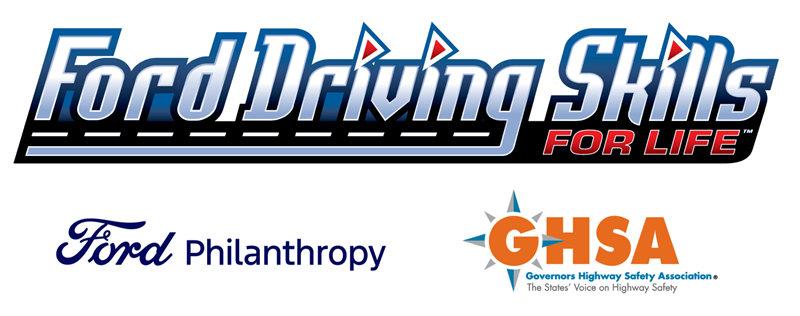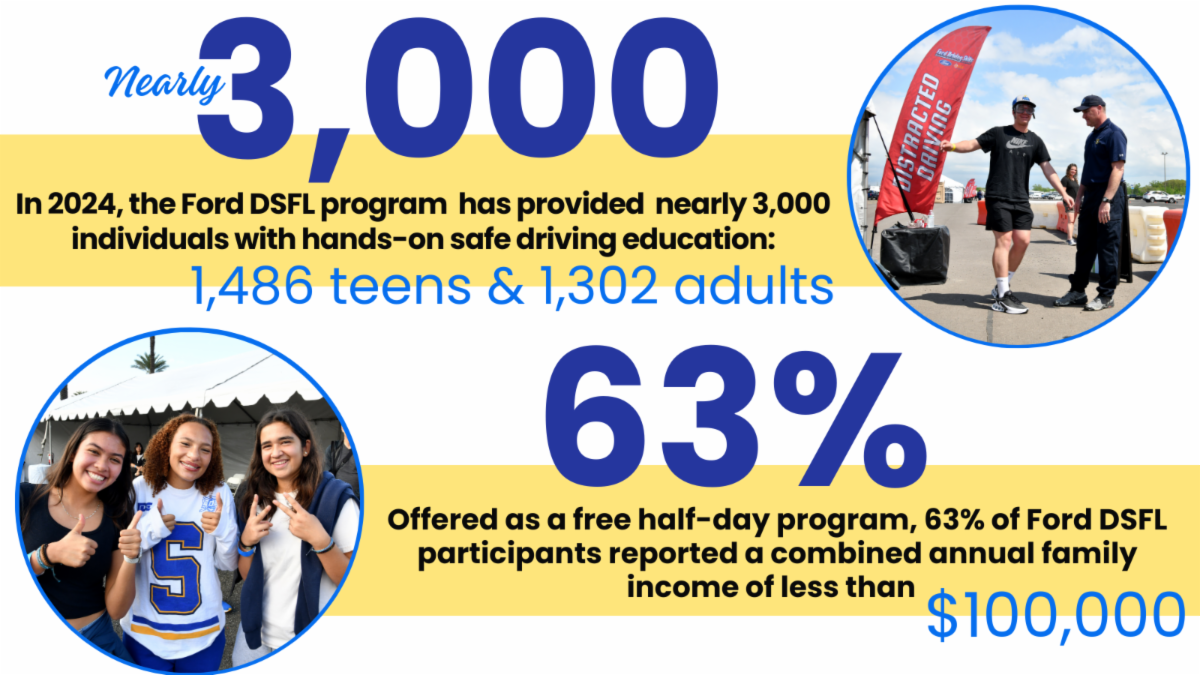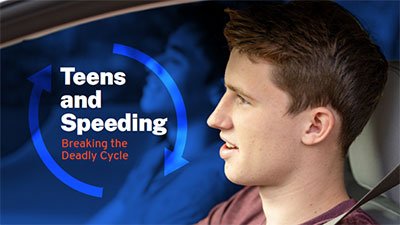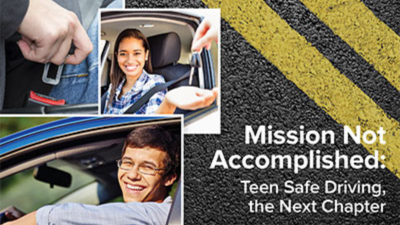
The award-winning Ford Driving Skills for Life (Ford DSFL) helps teens build skills in key areas - vehicle handling, hazard recognition and speed and space management. The program features hands-on driving events with enhanced safety protocols, and a website with resources for teens and their parents.
Hands-On Training

Since 2003, Ford Philanthropy has invested more than $60 million in the Ford Driving Skills for Life program, a long-standing contribution to the goal of zero traffic deaths on U.S. roads. Driving Skills for Life provides free, advanced, hands-on driver education – including sessions on protecting pedestrians, bicyclists and scooter riders – to more than 1.25 million newly licensed teen drivers in all 50 U.S. states and 46 countries worldwide. Giving teens the tools and training they need to make better decisions behind the wheel creates safer roadway conditions for everyone, regardless of whether a motor vehicle is part of their mobility journey.
The 2024 tour launched in April and is coming to cities across the country this year. For more information and updates on upcoming tour locations, visit drivingskillsforlife.com.

Source: In the Rear View, Fall 2024
Check out what it's like to attend a Ford DSFL teen driver safety training!
Going on Now: Teen Mobility Safety Grants
The 2024 grants are enabling Montana and the District of Columbia to support, implement and evaluate teen-centric safe mobility programs.
- The Montana Department of Transportation, in collaboration with Montana’s Office of Public Instruction, is launching a program to enhance driver education for Tribal youth. The program includes hands-on driver training workshops focused on Native American teens, many of whom are unable to access formal instruction. The state will also provide five scholarships of $5,000 each to help teachers in Native American communities become driver education instructors. This will help address a shortage of driving instructors in Tribal areas and ensure the long-term viability of the program.
- Washington, D.C.’s District Highway Safety Office is prioritizing pedestrian and bicycle safety outreach and education for the unhoused community, which includes transient populations comprised of migrant families, residents experiencing homelessness and others. This program will focus on three core areas: training for law enforcement and other government employees, who often have contact with unhoused people; community engagement, including distributing “safety kits” to unhoused individuals; and informing drivers of their role in keeping unhoused people safe.
Other Publications and Projects
The analysis for GHSA found that from 2015 to 2019, teen drivers and passengers (16-19 years of age) had a greater proportion of speeding-related fatalities (43%) than all other age groups (30%). During this five-year period, 4,930 teen drivers and passengers died in speeding-related crashes. It also sheds light on what we know about speeding-related fatal crashes involving teens – the driver is more likely to be male, have run off the road or rolled the vehicle and be unbuckled.
This report examines the differences in fatal crashes between older and younger teens, as well as by gender, and provides a set of 11 policy and best practice recommendations for states to implement. The data showed that improvements in teen-involved fatal crash rates have not been as dramatic for older teens (ages 18-20) as compared to their younger counterparts (ages 15-17), and teen drivers were still 1.6 times more likely to be involved in a crash than adults.
This publication examines adults — other than parents — who have the opportunity to influence teen decision-making about driving and showcases several safe driving initiatives. It opens with a primer to help states and practitioners understand why and how to successfully partner with these other adult influencers. It also discusses what potential adult influencers need to know about teen safe driving to ensure they understand the extent and nature of the problem and become champions.
Having received a teen safe driving grant from Ford Driving Skills for Life and GHSA in 2016, the Indiana Criminal Justice Institute (ICJI) was able to teach teens the importance of seat belt use through a state-wide contest.



